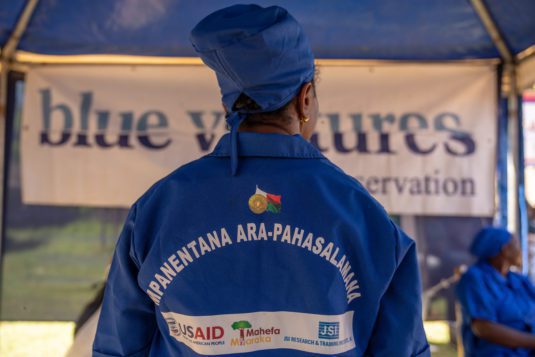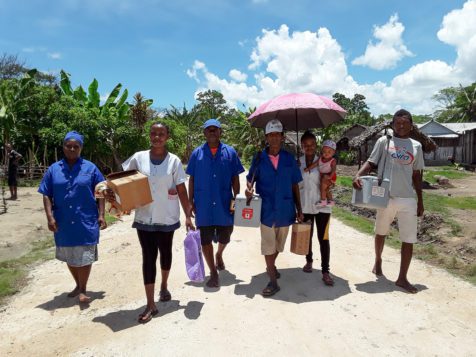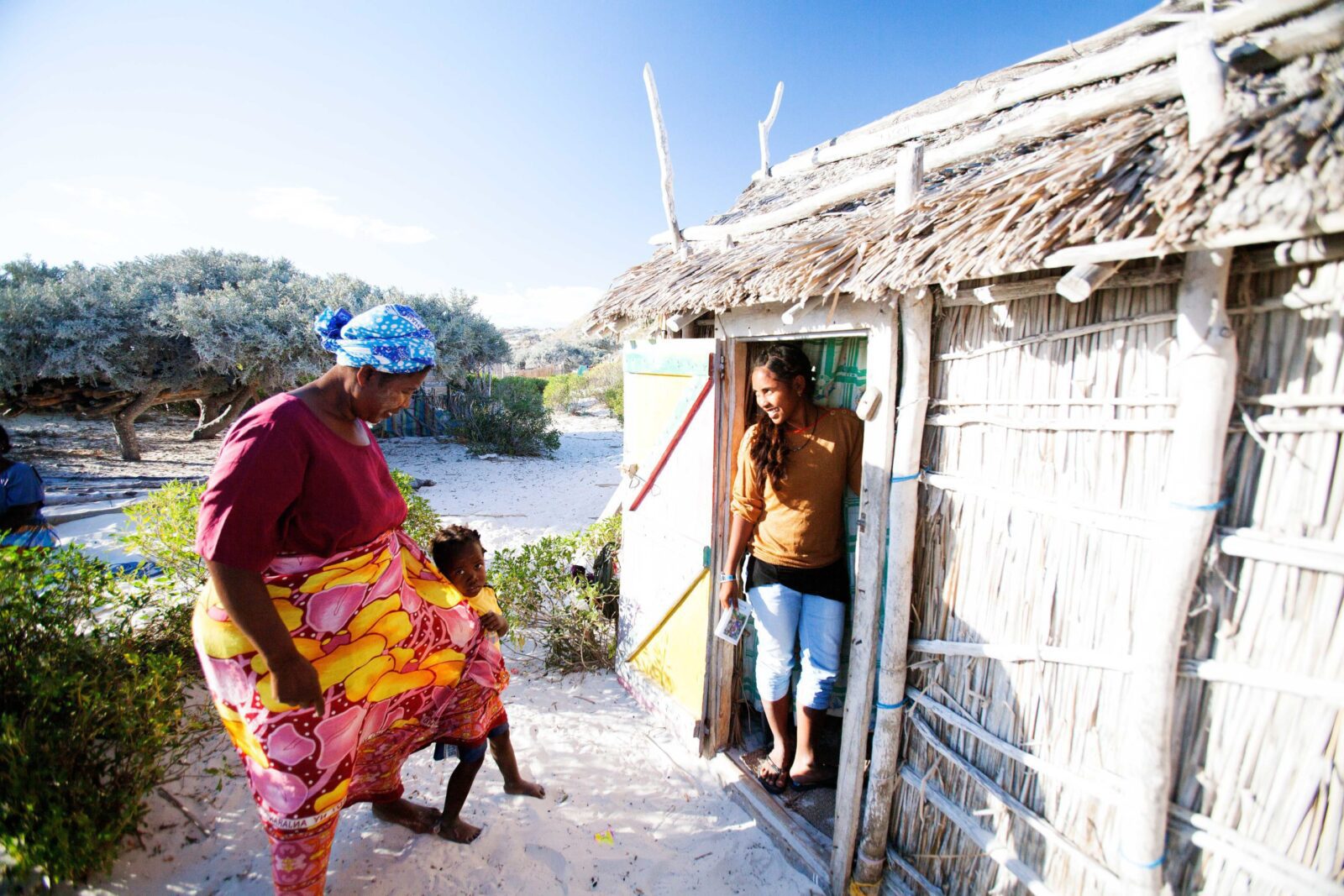*All of the photographs in this blog were taken before the coronavirus outbreak, now our staff and communities are following government advice and practicing safe social distancing.
As the Medical Director at Blue Ventures, I had hoped to be writing an upbeat piece to celebrate World Health Day 2020, sharing stories of how the work undertaken by nurses, midwives and community health workers is contributing to the health of the communities with whom we partner. I had planned to describe enthusiastically how as the health of coastal communities improves, they are better able to engage in marine conservation and fisheries management. Yet, due to the COVID-19 pandemic, I find myself telling a more somber story.

| Photo: Leah Glass
I have been a practicing doctor for 25 years, but in this unique global crisis, I find it difficult to comprehend what these front line health care workers will have to deal with, let alone the suffering that isolated communities in low income countries will endure, if and when the pandemic reaches them. Many of the areas in which we work are too remote even for community nurses or midwives to be based, and the “last mile” of health care is provided by unpaid community health workers. How will they cope? What’s going to happen to the communities in Madagascar that I have known for nearly two decades? These communities live in close-knit extended family households and compounds, where the concept of social distancing must seem totally alien. Many of them don’t even have proper handwashing facilities, let alone access to a ventilator. Whilst the coronavirus may be a great leveller, ignoring social, geographical and economic boundaries, it’s easy to see how the pandemic will disproportionately affect the poor and the vulnerable.
Despite this, I allow myself to feel hopeful.
As a marine conservation organisation, at Blue Ventures we have always acted holistically in response to the needs of the communities that we support. Since 2007 this holistic approach has included the provision of community health education and services, and in all five of our programme sites along the length of Madagascar’s west coast, we work with health agencies to improve community health. Thanks to our strong local presence, our community health teams will be able to support a rapid, local response to the threat of COVID-19, hopefully even before the virus reaches these isolated parts of the country.

Community health workers boldly taking on the measles epidemic in Madagascar last year | Photo: Melinda Fenn
Less than a year ago our community health team collaborated with health partners to tackle a measles epidemic, ensuring that all children in the target age group were vaccinated and that those who developed the disease received appropriate treatment. In 2013, when southwest Madagascar was hit by the worst cyclone in living memory, we supported community health workers to mount a public health response that no aid agency was able to match. Blue Ventures’ excellent community health team and this group of inspiring, dedicated community health workers give me confidence that this hope is well founded.
Our aims are to reduce community transmission of the virus, mobilise communities to support the most vulnerable and help strengthen the existing health care system so that it can cope with the epidemic, as well as maintain essential health services. We will also be sharing ideas, tools and resources with our partners in Madagascar and beyond, so that as many tropical coastal communities as possible are better able to shield themselves from the impact of the pandemic.
This sort of response is on a different scale to anything we’ve tried before, and it’s heartening to see the whole Blue Ventures team get behind it. Over the coming weeks we may see aquaculture technicians working alongside community health workers to support social distancing measures, for example; community based fisheries technicians may be asked to assist in gathering epidemiological data on the spread of the disease; boat captains and drivers could play a vital role in transporting medical supplies along the coast. Our field teams have been trained in cross sector working and understand the interconnections between human and environmental wellbeing. The ability to mobilise our teams in this way makes us uniquely well placed to respond to the pandemic.

Community health workers provide vital ‘last-mile’ healthcare | Photo: Garth Cripps
So I think there is reason to be hopeful: hopeful that Blue Ventures can make a useful contribution to the collective response to the pandemic in Madagascar and beyond, and hopeful that we will continue to put communities first, even if that means redeploying ‘conventional’ conservation colleagues in support of the community health effort. What sort of difference this will make to the outcome is impossible to predict; there’s so much we still don’t know about the coronavirus and this pandemic.
All I can say with certainty is that given the challenge we’re collectively facing, there is an overwhelming moral imperative to act. I feel grateful to be part of an organisation that is wholeheartedly embracing this responsibility, and that we partner with a team of such dedicated, resourceful health workers.
Read more about the impact of coronavirus on Blue Ventures’ work, find out more about our community health programme or if you are able please consider supporting our work.

